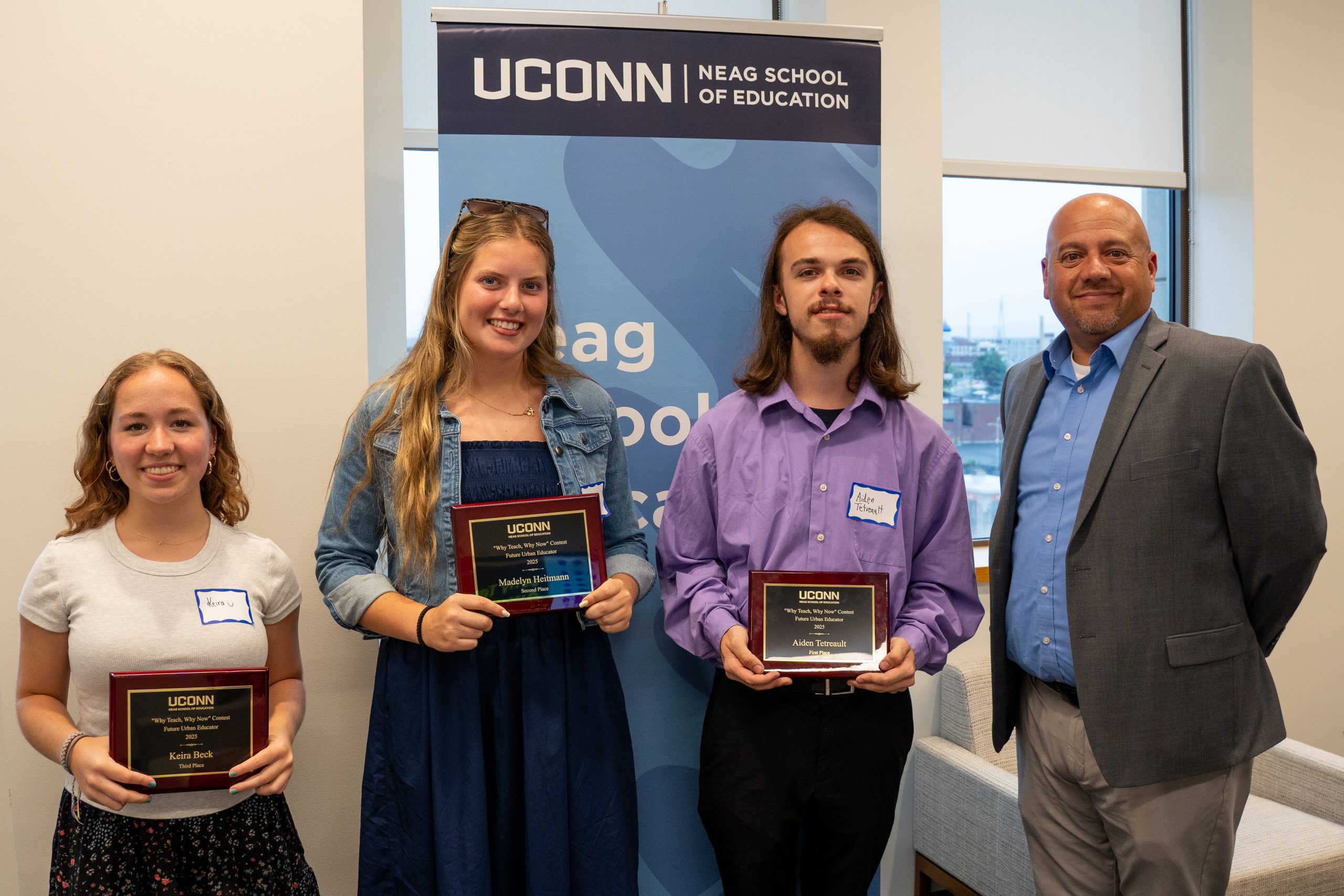Associate professor of Civil & Environmental Engineering Emmanouil Anagnostou was presented the prestigious Marie Curie Excellence Award during official ceremonies in Dublin, Ireland on December 1, 2005. The Marie Curie Excellence Award is the highest honor of the European Commission (EC) and is intended to bring attention to the outstanding achievements of scientists who have attained a high level of excellence in their careers. The award includes a cash prize of 50,000 euros, or about $60,000 U.S. dollars.
Dr. Anagnostou was cited for his research work in “Advancing Use of Satellite Remote Sensing in Hydrology and Natural Hazards.” The EC awards just five Marie Curie Excellence Awards yearly, across a spectrum of disciplines. Dr. Anagnostou was selected by a grand jury, which judged its decision based on peer review evaluations. He is the first recipient in the area of environment and geosciences since the Commission’s founding of the award. As an award recipient, Dr. Anagnostou will deliver keynote addresses at public events across Europe with the objective of improving the visibility, recognition and attractiveness of research careers, and to enhance the public’s understanding of how science contributes to economic and societal well being.
Dr. Anagnostou joined the University of Connecticut in 1999. His research focuses on advancing precise techniques for precipitation estimation from both space and ground-based sensors, paired with the optimum assimilation of remote sensing data in atmospheric and hydrologic models for the prediction of hazardous floods and flash floods. He developed a mobile X-band Polarimetric On Wheels (XPOW) system as part of his network of highly precise instruments for hydro-meteorological data gathering.
Dr. Anagnostou previously received the 2002 Plinius Medal from the Interdisciplinary Working Group on Natural Hazards of the European Geophysical Society. He also received a National Science Foundation Early Career Award and a NASA New Investigator Award. He earned his Ph.D. in 1997 at the University of Iowa.



